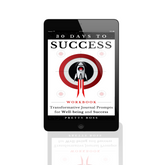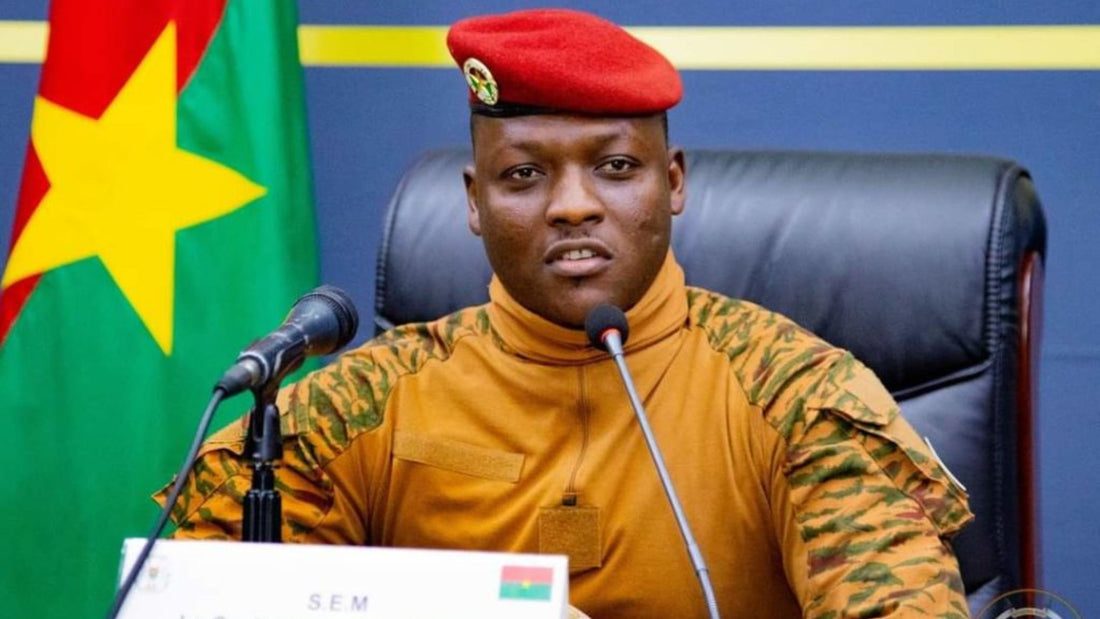⏳ 6 min read | by Pretty Boss
Ibrahim Traoré, Marcus Garvey, and the Rise of Pan-Africanism
A Call to Build, Move, and Expand
Introduction: A New Era of Global Power
As we celebrate Black History Month, we honor the leaders, thinkers, and movements that have shaped the global Black experience. But history isn’t just something we look back on. It’s a foundation for what we build next.
From the vision of Marcus Garvey, who dreamed of a unified and self-sufficient Black nation, to the bold leadership of Ibrahim Traoré, who is challenging the West’s control over Africa, we are witnessing a new Pan-African wave. One that is not just about politics but about economic power, strategic migration, and global influence.
And while this movement has components centered on Black empowerment, it is not exclusive. It welcomes all forward-thinking individuals who recognize the importance of sovereignty, self-reliance, and a new global structure that benefits everyone. The future is about moving beyond borders, breaking out of old systems, and creating sustainable, sovereign communities. In Africa, the Caribbean, and beyond.

Marcus Garvey: The Blueprint for a Global Independent Nation
Long before today’s conversations about global mobility, nation-building, and economic sovereignty, there was Marcus Garvey.
✅ Garvey’s Vision: A self-sufficient Independent nation, built by and for people of African descent.
✅ Garvey’s Strategy: Economic independence through business ownership, land acquisition, and global networking.
✅ Garvey’s Execution: The Universal Negro Improvement Association (UNIA) and the Black Star Line. A project to connect African people in the Americas with Africa for trade and migration.
- What Garvey preached in the 1920s is exactly what we see today:
- African Americans and Caribbeans relocating to Africa and South America for better opportunities.
- A resurgence of Pan-African business investments across Ghana, Rwanda, and Senegal.
- A growing movement toward dual citizenship and multinational entrepreneurship.
The difference? We have more tools today than Garvey ever did. The internet, decentralized economies, remote work, and global access to education allow all people to move, build, and connect faster than ever before.

Ibrahim Traoré: A Modern Garveyite in Africa?
Ibrahim Traoré, Burkina Faso’s 36-year-old leader, has been compared to past African revolutionaries like Thomas Sankara. But in many ways, his actions reflect Garvey’s vision of a self-reliant nation free from colonial influence.
Under Traoré’s leadership:
✅ Strengthened Ties with Russia: Engaged in discussions with Russian President Vladimir Putin, leading to agreements on military cooperation and the construction of a nuclear power plant in Burkina Faso.
✅ Burkina Faso expelled French troops and cut dependence on Western aid.
✅ He aligned with Mali and Niger, forming an independent bloc to reduce Western interference.
✅ He transformed Burkina Faso’s prisons into agricultural centers, ensuring food security after the U.S. cut USAID funding.
✅ He promoted self-sufficiency, economic independence, and Pan-African unity. Echoing Garvey’s principles of “Africa for Africans.”
Garvey believed that Africa was the key to global . Traoré is proving that when African nations take control of their own resources, they can break free from exploitation.
For those of us in the diaspora, this means:
- Africa is becoming a place where Western Minorities can thrive, invest, and build generational wealth.
- The old colonial economic structures are crumbling, and there is space for new independent-owned global enterprises.
- Those who see the bigger picture. Whether Black, Latino, Indigenous, or progressive-minded individuals of all backgrounds. Have an opportunity to build something new and sustainable.

Becoming Multinational: A New Playbook for the Black Diaspora
For people worldwide, becoming multinational is no longer a dream. It’s a necessity. Economic and political instability in the West, rising costs of living, and the declining value of U.S. dollars and European economies make it critical for us to think globally.
Here’s how we can apply Garvey’s Blueprint for Nation-Building today:
1. Get a Second Citizenship & Expand Your Global Reach
✅ African Ancestry Citizenship: Ghana, Sierra Leone, and Nigeria offer citizenship to the African diaspora.
✅ Caribbean Passports: Countries like St. Kitts, Dominica, and Grenada offer investment-based citizenship.
✅ Strategic Relocation: Latin America, Africa, and parts of Asia provide cost-effective living and economic opportunities.

2. Control Our Own Resources & Economies
✅ Invest in African, Latin American & Caribbean land, real estate, and agriculture to secure long-term wealth.
✅ Develop independent-owned global businesses that don’t depend on Western funding.
✅ Support decentralized economies (cryptocurrency, blockchain tech, and fintech in Africa).
Look at this global resources map:

African Investment Opportunities:
🌎 Agricultural Potential: Africa possesses vast tracts of arable land, with over 60% of the world's uncultivated arable land located on the continent. This presents a unique opportunity for agricultural investments aimed at enhancing food security and generating substantial returns. - fao.org
🌎 Real Estate Growth: Urbanization in Africa is accelerating, with projections indicating that by 2050, 60% of Africans will reside in urban areas. This urban growth fuels demand for residential and commercial real estate, offering lucrative prospects for investors. - Howwemadeitinafrica.com
3. Build Power Through Community & Networks
✅ Connect with global professionals, investors, and entrepreneurs across borders.
✅ Create digital platforms that support independent-owned international trade.
✅ Mentor the next generation on global strategy and economic empowerment.
This is the future of the Multinational Entrepreneur. Real ownership, economic control, and mobility.

Beyond Black Liberation: A Call to Forward Thinkers of All Backgrounds
While this movement has components centered around Black sovereignty, economic independence, and cultural self-determination, it is not limited to Black people alone.
✅ Forward-thinking individuals from all backgrounds. Whether Latino, Indigenous, or those who reject the Western global order. Are beginning to see the cracks in the system and are looking for alternatives.
✅ A world that is less dominated by a few Western superpowers and more balanced with African, Latin American, and Asian economies benefits everyone.
✅ The rise of decentralized economies, borderless trade, and self-sufficient communities will be the foundation of a new global society. One that is not dependent on the same colonial systems that have divided us for centuries.
If you see the world through a lens of sovereignty, self-reliance, and strategic power moves, then you are part of this shift. No matter your race or nationality.

Final Thought: Black History is Global, and So is Our Future
Marcus Garvey preached that African American people must control their own destiny. Ibrahim Traoré is proving that African nations can break free from Western control. And today, everyday people across the diaspora have the tools to become multinational, sovereign, and self-sufficient.
Black History Month is a time to celebrate the past, but it’s also a time to build the future. The world is changing. Will we take control of our own global power, or will we remain confined by old systems?
The choice is ours. 🌍🔥
Have you ever heard of Ibrahim Traoré? Let me know how this article resonates in the comments.
#TAKEOVER2025






















